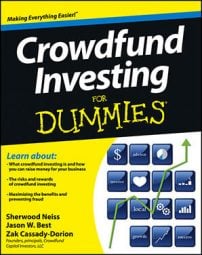Startups seem sexy. When you think about a startup, you may envision a bunch of high-tech college kids camped out in a fraternity house or apartment, coding away, living on beer and pizza, and figuring out how to change the world and get rich in the process. In reality, startups emerge from every part of a community, from chambers of commerce to incubators to kitchen tables.
Essentially, a startup is a pre-revenue company that may be in the “great idea” phase or may have been developed into a business plan complete with marketing and financial ideas. In better cases, a startup has a proof of concept (meaning that its feasibility has been proven).
Startups are the riskiest types of investments because so many things can go wrong. Maybe the idea itself proves to be bad. (Turns out that people won’t actually buy chocolate-covered gummy bears.) Maybe the revenue model doesn’t pan out. (Turns out that people expect information on the Internet to be free.)
Maybe the concept wasn’t thought through well enough in advance. (Turns out that website you need requires an integrated payment system, which isn’t in the budget.) The list of possible pitfalls is long and stress inducing.
So, why do startups ever get off the ground? Because great businesses (the kind that bring innovative products to market, earn lots of revenue, and employ brilliant people) have to start somewhere, and many risk takers want to be involved from day one with the Next Big Thing.
From the investors’ perspective, the chance of return over the long haul is much greater with a startup than with almost any other type of investment, assuming the startup eventually leads to an initial public offering (IPO). Of course, the chance of losing every penny of your investment is also much greater.
Not all startups are IPO material. For instance, consider someone who wants to start an organic farm to supply produce to local restaurants, or someone who plans to run a home renovation business. Neither one is a highly likely candidate for a future IPO. That doesn’t mean these aren’t good investments — it just means they aren’t the types of startups you see discussed at length in the financial press.

